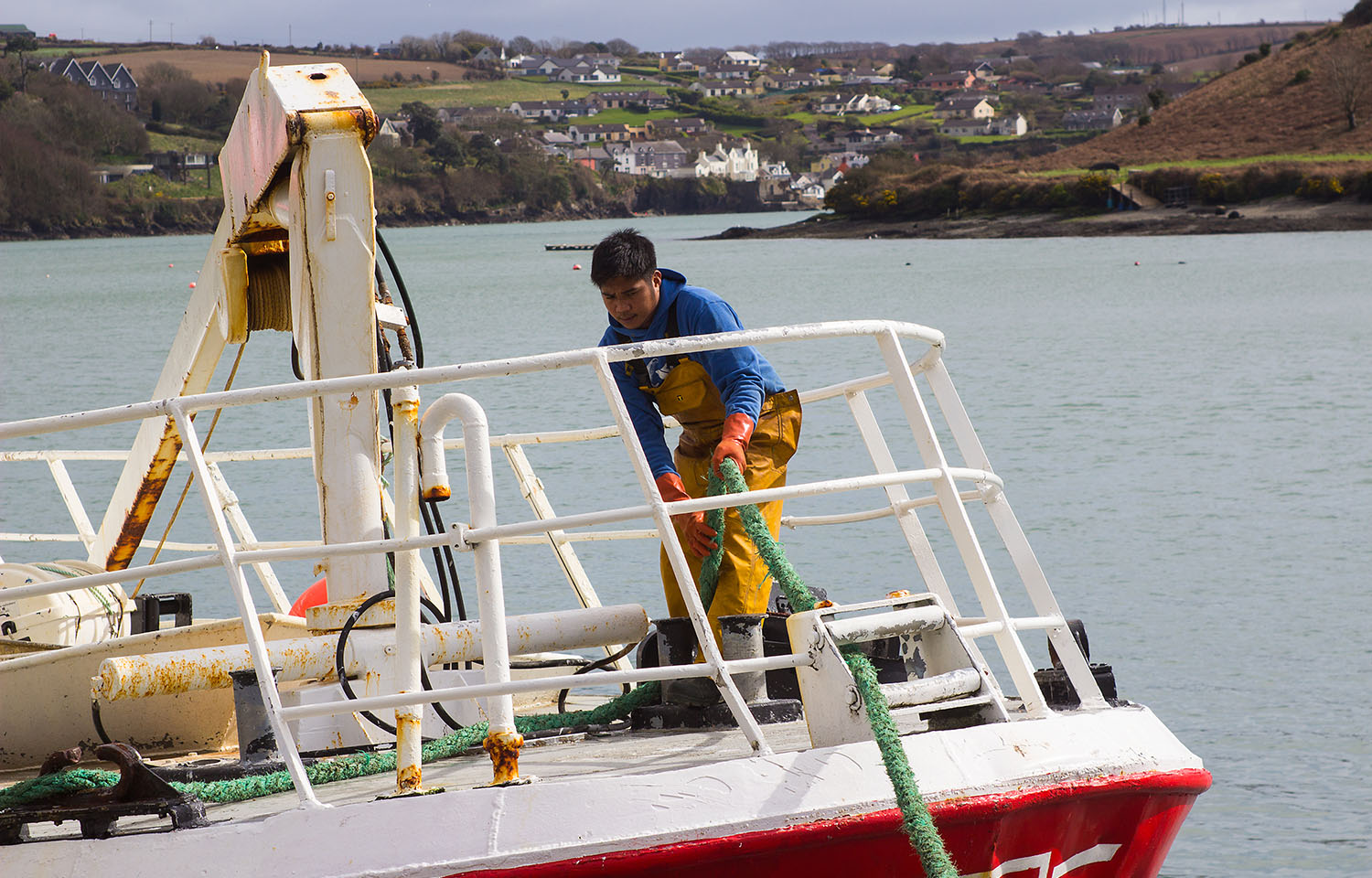Irish authorities have set a new minimum salary of EUR 34,000 (USD 36,720) per year for foreign workers employe don Irish fishing vessels.
In the coming weeks, Ireland plans to launch a quota of visas for non-EEA workers – or workers outisde the European Economic Area, which includes the European Union and several non-E.U. states but not Britain. Those permits will only be granted for roles paying the new minimum, effectively setting a salary floor.
The General Employment Permit (GEP) system, which has been commonly used in the food processing and manufacturing sectors to allow employers bring in labor from India, Ukraine, and the Philippines, among other places, is being extended to fisheries. The salary thresholds for a worker employed through the GEP was raised from EUR 30,000 (USD 32,400) to EUR 34,000 at the start of 2024, meaning an Irish fishing company must pay EUR 34,000 to any worker employed under the GEP.
However, there has been a lengthy delay in making the change, with the Ireland Department of Enterprise, Trade, and Employment insisting on a process to confirm that the employers as a collective cannot fill the anticipated vacancies from within the E.U. The department said legislative changes were required to be approved by Ireland’s parliament to make the changes binding.
Michael O’Brien, fisheries section at the International Transport Workers Federation (ITWF) office in Dublin, said he fears Irish fishing companies will continue hiring undocumented workers.
“I do have a question as to whether the vessel owners will swallow having to pay new recruits EUR 34,000. Maybe they can recruit Europeans at that level, maybe some will still try to recruit undocumented below this level. It remains to be seen,” he said. “[I am aware of] vessel owners with a crewing need who have filled it with undocumented or improperly documented non-European fishers. I cannot vouch for how hard they tried to fill these vacancies from within the E.U.”
ITWF previously criticized the Irish government for failing to weed out human trafficking and other abuses the exist in the country’s fishing industry, which contributed to the country being named as a second-tier country in the “Trafficking in Persons (TIP) Report 2021,” a watchlist compiled by the U.S. State Department that tracks human trafficking worldwide.
In 2023, ITWF accused the Irish government of reneging on a commitment to protect migrant fishery workers by not introducing legislative amendments it had promised unions it would implement. And the ITWF has been assisting four Ghanaian fishermen who survived the sinking of a trawler off the west coast of Ireland on 3 March 2024. The union claims they were fraudulently employed and working illegally in Ireland.








